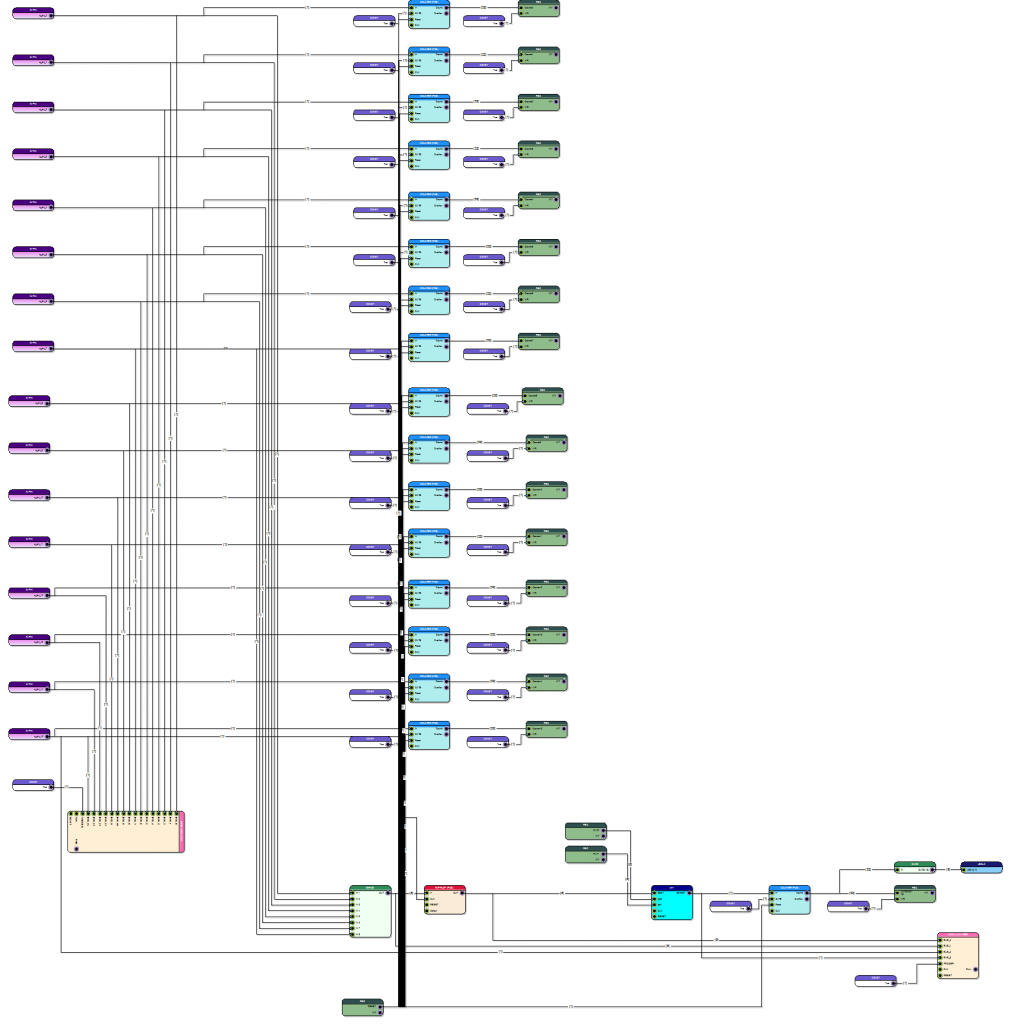CAEN V2495 is a powerful programmable digital system designed to manage about 300 I/O signal in order to implement complex logic function, counters and triggers. In this example we will use the V2495 board to generate a pattern starting from the content of a file; the pattern generator is then used to stimulate a series of counters and a pattern matching state machine that can be programmed by USB, VME or Ethernet in order to recognize a two word pattern. All counters can be read out or resetted from USB, VME or Ethernet. When the pattern is recognized a Pattern Matching (PM) counter is increased. The PM counter can be read out by the comunication bus and heights of its bits (15:8) are shown on the 8 user leds. In order to readout and control counters or set the pattern in this example we will not use any custom software: SCICompiler has inside a tool called Resource Explorer. This tool enumerate all the pheripheral connected to the local bus of the V2495 device and list all available register and devices. In the firmware are inserted two logic analyzer: the first connected to all inputs (16 channels of A connector) and the second connected to the input and output of the patter matching state machine, in order to monitor the numeric value present on the bus.

PATTERN GENERATOR
SCICompiler has different embedded signal generator. It is for example possible to generate exponential signals to test energy processing blocks, generate digital waveform or import file in binary, heaxadecimal or decimal, format in order to generate a periodic sequence. The Patter Generator can be configure in order to reproduce the sequence with a configurable speed. The Pattern reproduction can be started automatically or upon the transition of a start signal.
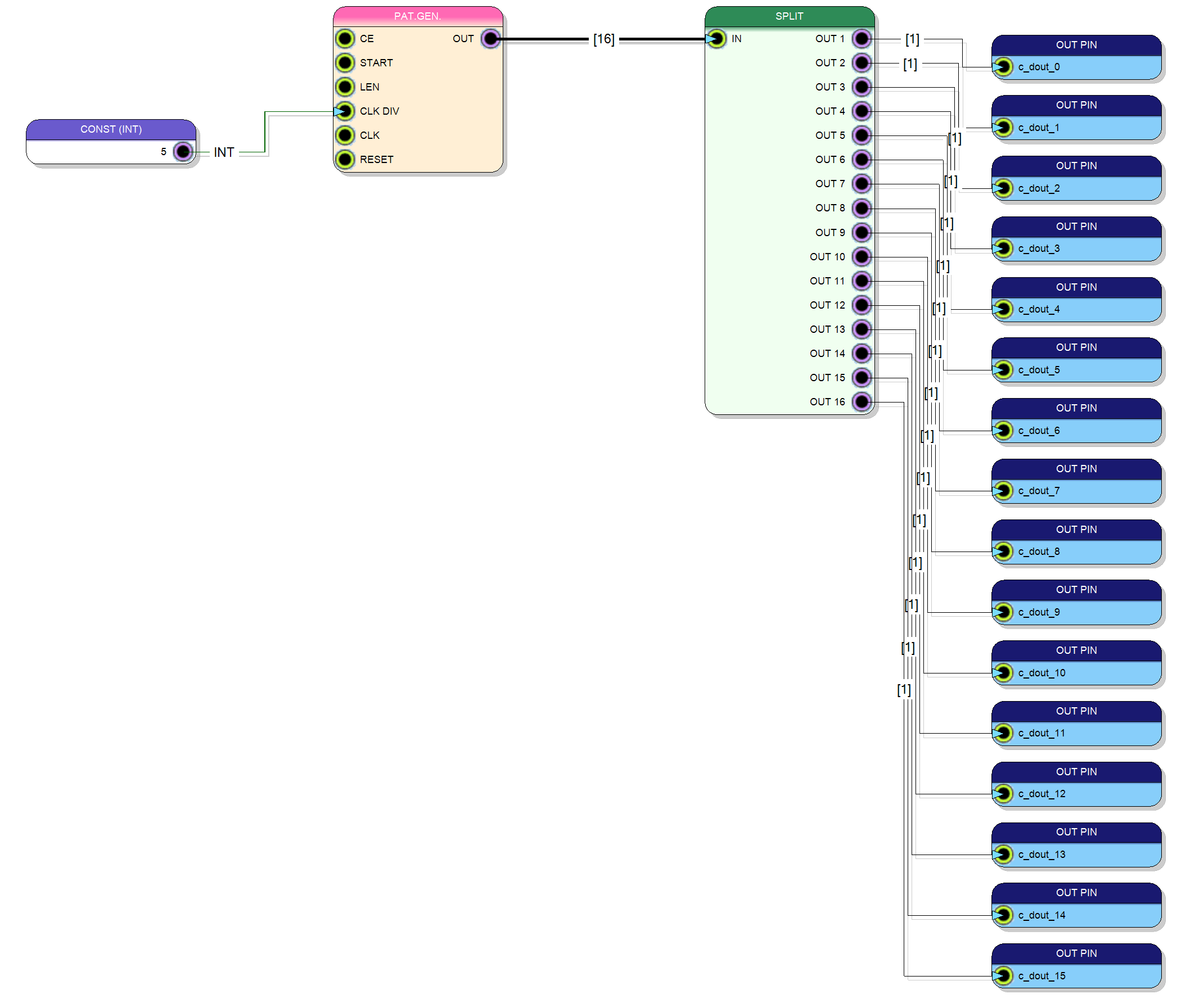
LOGIC ANALYZER
SCICompiler includes a powerful Logic Analyzer that can be used to remote monitor the input signal and the internal interconnection of the design. The Logic Analyzer can be used both douring the design phase to debug the processing core both during normal operation to control the status of I/O even from a remote desktop. If you are not sure to have connect all cables correctly now you can avoid to enter in the experimental area and you can just add a debug probe to a pin and se if it toggle. The Logic Analyzer can be triggered, internally (upon the transition of one of the input), externally (upon the trasition of a dedicated trigger input), or by software. Signal in the Logic Analyzer can be grouped into bus. More then one Logic Analyzer can be added to the same design. The resource exporer software is able to enumarate the variuos logic analyzers and implements a GUI to interact with them and show the waveforms. A DLL library (open source) is also available to integrate the Logic Analyzer GUI in a user application. Logic Analyzer data could also be dumped by library function using any programming language that support interaction with dynamic libraries (in Windows, Linux and MacOS) like C/CPP, Matlab, ROOT, Labview
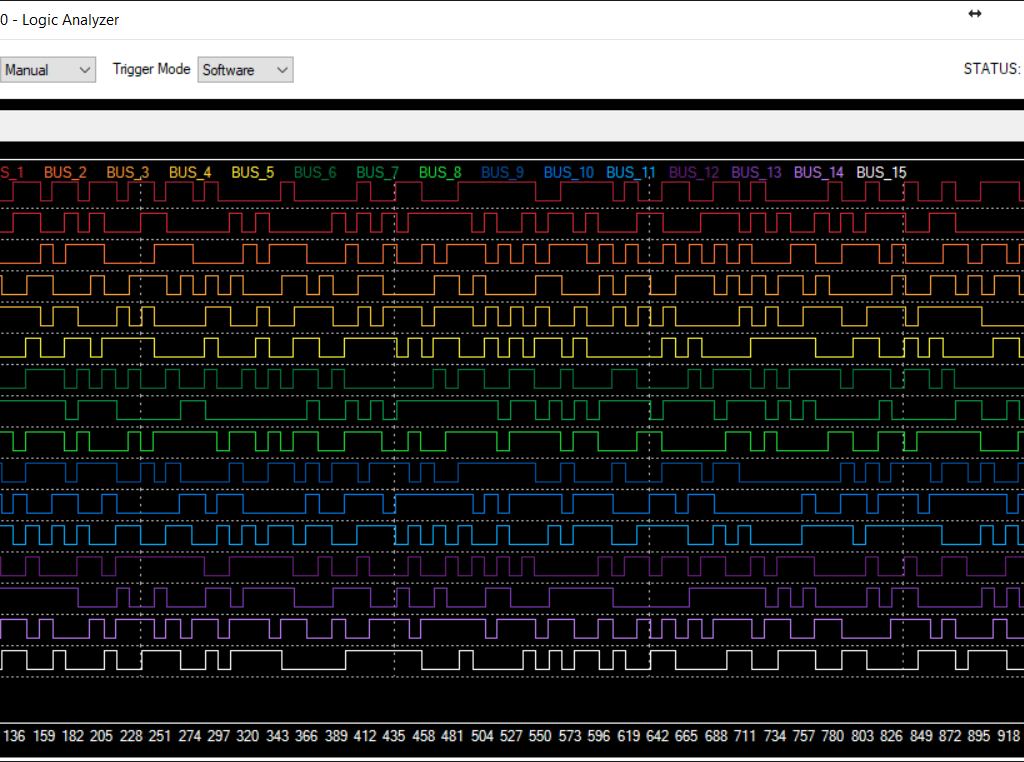
MEMORY MAPPED REGISTER
User Interaction by USB/VME/Ethernet bus is one of the most important feature of SCICompiler In the design of a processing system the implementation of a secure and fast communication protocol is one of the most time spending task. SCICompiler implements in its core all the necessary circuit to map Registers and Memory Buffer in a 16 bit for V2495 and 32 bit for DT5550 memory space direct addressable from a remote PC. All drivers and libraries for Windows and Linux are automatically generate by SCICompiler User tasks are limited to define the registers and connect them to internal signal of the design Register can be seen like an endpoint that can be written or read from the control PC. FIFO (List moduele or Image module) are more similar to a pipe. What is written inside disappear and is transported on a memory buffer on the PC. Spectrum memory can be seen as an external memory area that the computer can read/write specifying the address
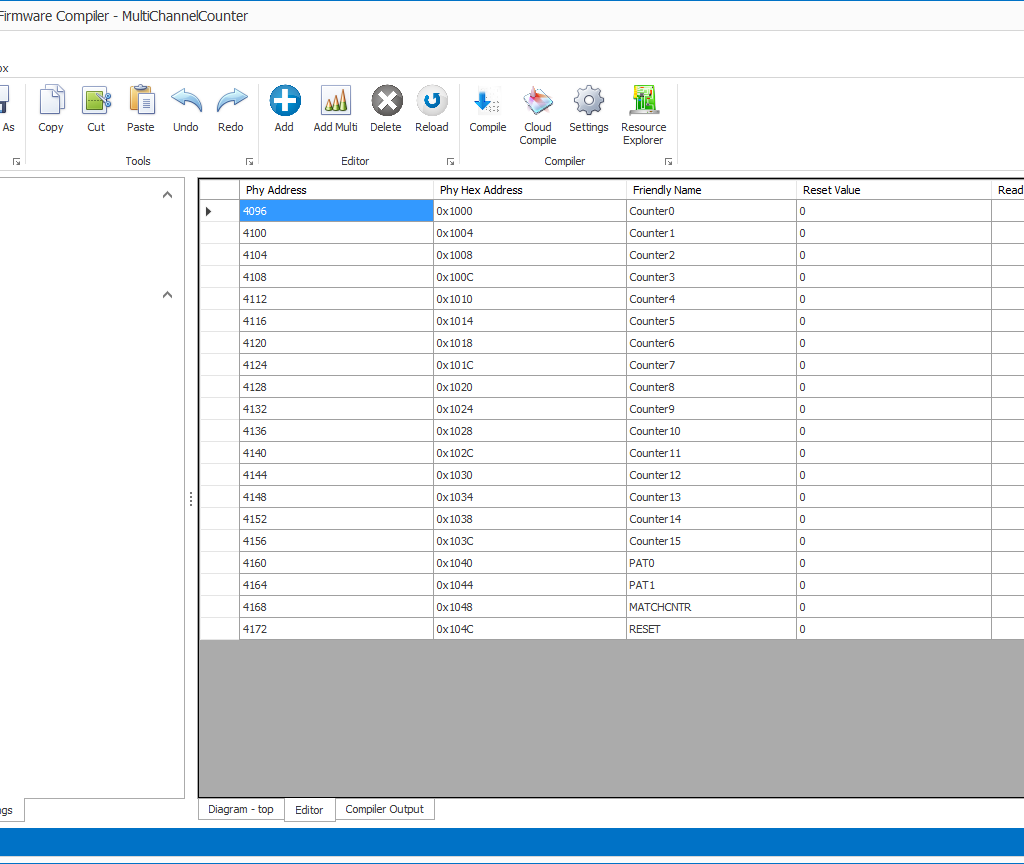
COUNTERS
Counter modules are direct connected to the digital input of the board. The increase by one every time they are triggered by a transition (HL, LH or BOTH) of the input signals. The 32 bit counter outputs are direct connected to the Memory Mapped registers those are periodically read out by the controlling PC
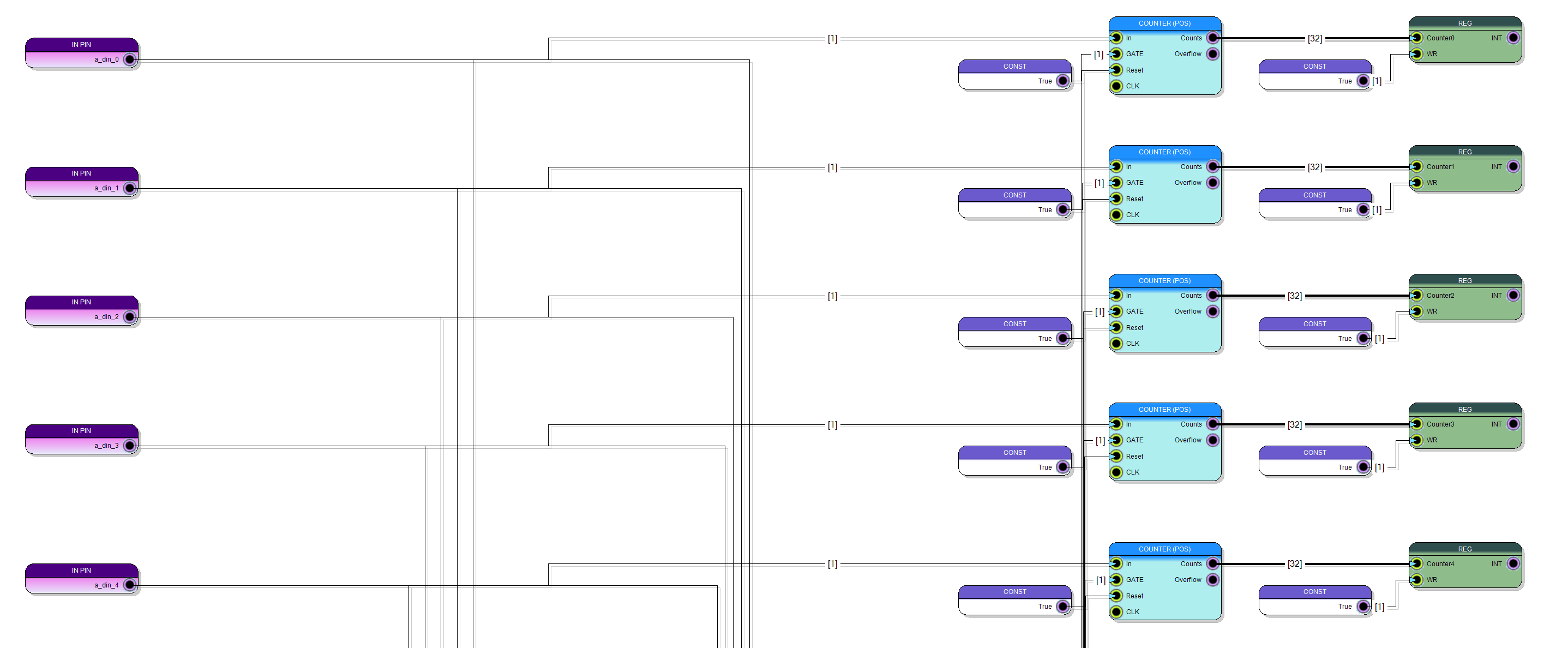
PATTERN MATCHING
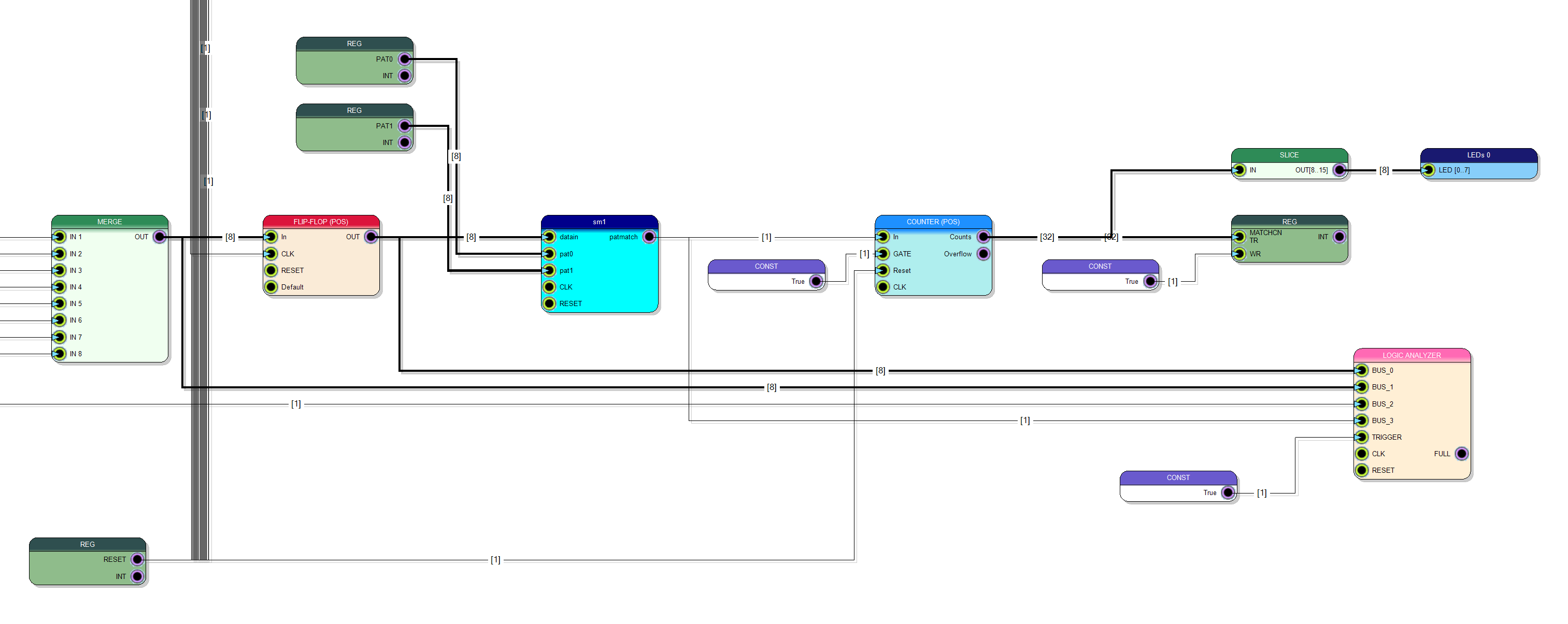
STATE MACHINE GENERATOR
- The actions perform by the different states
- The conditions to exit from a state
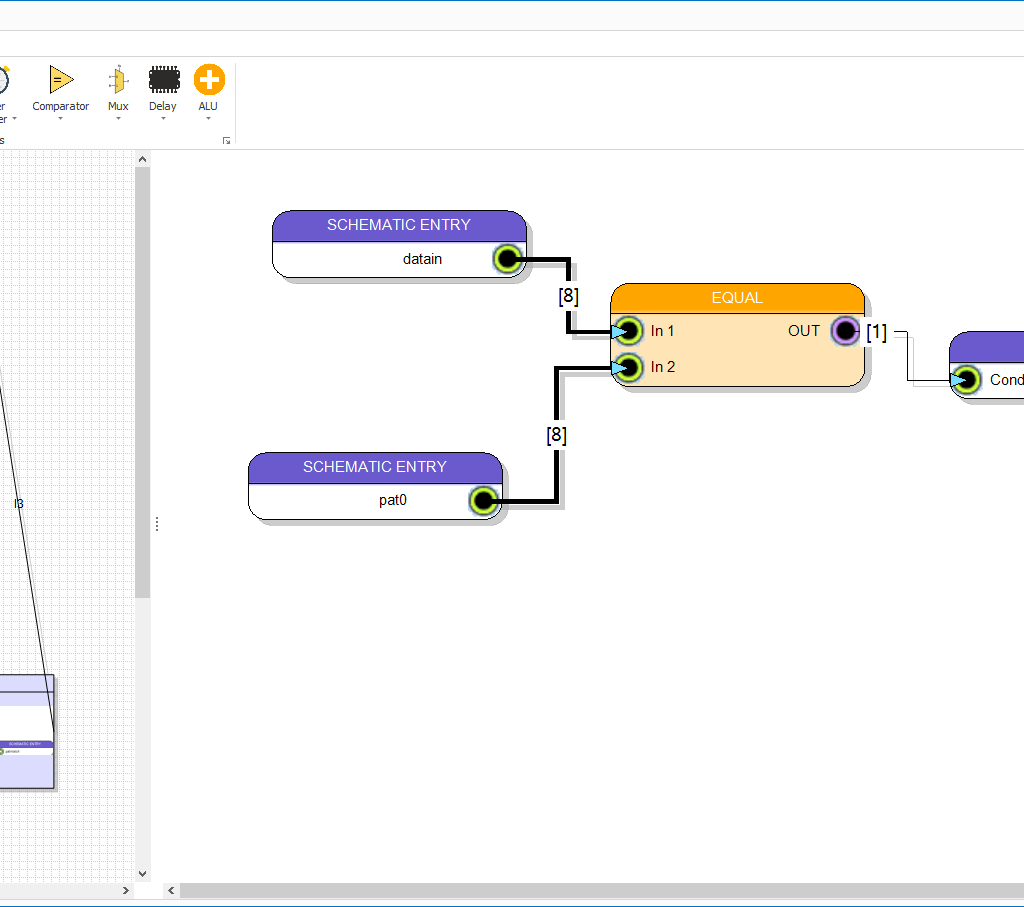
FIRMWARE REVIEW
The block diagram below shows the full firmware implemented inside the V2495.
